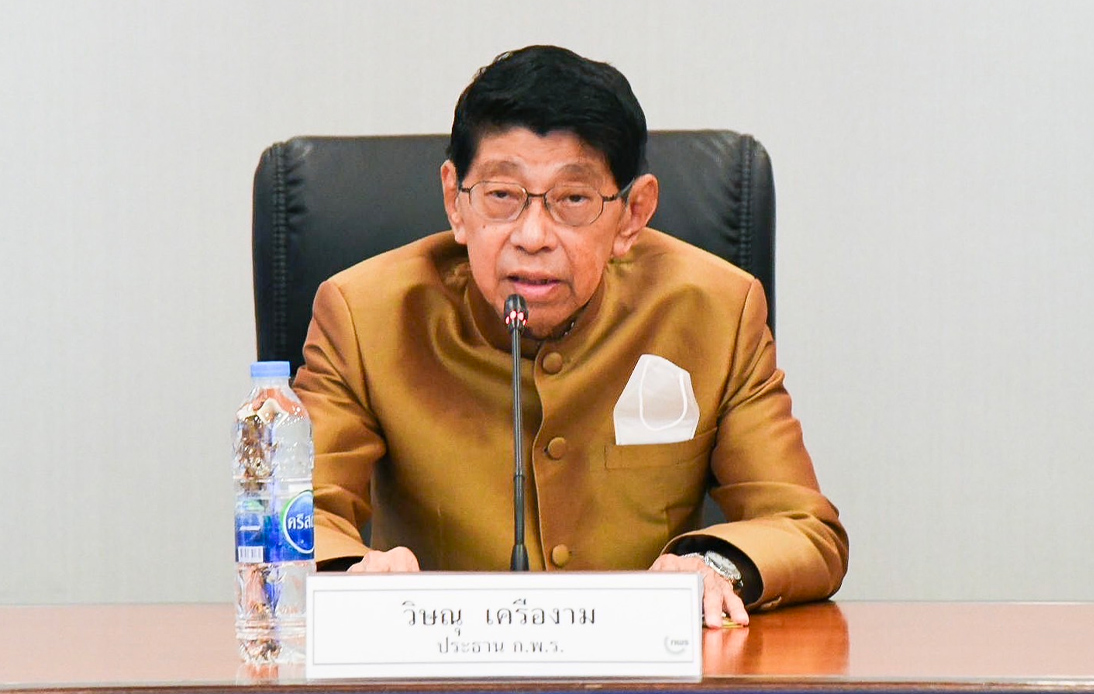
On Tuesday, Deputy Prime Minister Wissanu Krea-ngam dismissed the significance of the Constitutional Court’s move.
The court had requested an update from the Attorney-General’s Office (OAG) regarding a petition against the Move Forward Party (MFP) for its alleged attempt to overthrow the constitutional monarchy.
Mr. Wissanu explained that the request is merely following protocol, as the OAG is obliged to report its decision to the court 15 days after receiving the petition.
The Deputy Prime Minister further stated that it is too early to speculate about the possibility of the petition leading to the dissolution of the MFP.
Even in the event that the court decides to hear the petition, it won’t affect the forthcoming parliamentary vote for a new prime minister, as the issue is related directly to the MFP and not specifically to MFP leader Pita Limjaroenrat, according to Mr. Wissanu.
Therefore, this means the case would not result in the suspension of Mr. Pita’s MP status while the court is considering the case, he explained.
The MFP’s position on Section 112 of the Criminal Code, commonly referred to as the lese majeste law, is seen as an attempt to overthrow the constitutional monarchy and therefore a violation of Section 49, alleges Theerayut Suwankesorn, who filed the petition.
Theerayut Suwankesorn, a well-known lawyer who defended Suwit Thongprasert, a former activist monk also known as Phra Buddha Isara, is the petitioner.
Deputy OAG spokesman Kosolwat Inthachanyong asserted that the OAG has not neglected the petition.
Kosolwat Inthachanyong further elaborated that the OAG still awaits certain essential documents from relevant organizations and agencies which may significantly impact the final decision.
In the meantime, MFP leader Mr. Pita stated that the petition does not concern him and that the MFP will not alter its position on amending Section 112.
He cautioned senators not to leverage his party’s intention to change the lese majeste law as an excuse to block his candidacy for prime minister, which would position the higher institution against the people.
Mr. Pita voiced concern in the parliament yesterday that using the MFP’s proposal to amend Section 112 as an argument to deny him the prime minister post would be a problem.
“That is tantamount to letting the people’s voice clash directly with the institution. It is inappropriate and dangerous,” he stated, leading his party’s new MPs to the House secretariat.
“Section 112 has been used as a political tool against people with different opinions, and that does no good for any institution,” he added.
The leader of the largest party affirmed his commitment to upholding the system of constitutional monarchy in Thailand.
“Many parties still misunderstand. An amendment is not a repeal of the law.”
“There have been talks with senators, and they are starting to understand that to maintain the constitutional monarchy, there must be suitable changes at a time when Thailand is in a period of transition,” explained Mr. Pita.
When asked for his thoughts on senators who declared they would not back him for the prime minister position, Mr. Pita expressed hope they would respect the principle of not opposing the voice of the people.
His party secured 151 House seats in the general election on May 14, which is more than any other party.
Mr. Pita needs the support of a majority of the entire 750-member parliament to become prime minister. This means he needs at least 376 votes, which he believes he can secure.




















